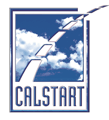California’s New Zero-Emission Vehicle Battery Manufacturing Grant Program Invites Applicants to Apply for Funding!
PowerForward will offer up to $35 million in grant funds.
Pasadena, CA – CALSTART, a California-based clean transportation nonprofit, today announced the opening of PowerForward, California’s equity-first, market-accelerating, ZEV battery-manufacturing infrastructure grant program. This program is funded by the California Energy Commission (CEC) and is implemented by CALSTART in partnership with New Energy Nexus, Lawrence Berkeley Lab, and Yunev.
PowerForward is designed to attract and retain manufacturing of batteries for zero-emission vehicles (ZEVs) in California, create positive economic impacts that benefit local communities and priority populations, foster a California battery supply-chain ecosystem and contribute to California’s goal of zero-emission transportation. It aims to lead the equitable transition to a green economy by setting a standard for domestic battery manufacturing that focuses on environmental impact, community engagement, and workforce development.
This grant solicitation is open only to private, for-profit businesses with projects in California now through July 1, 2024, at 5 p.m. Pacific Time with priority given to those hiring in disadvantaged communities (DACs) and low-income communities (LICs) throughout the state. DACs are defined as being in the 75 to 100 percentile (top 25 percent) of CalEnviroScreen 4.0. and LICs are the census tracts and households, respectively, that are either at or below 80 percent of the statewide median income, or at or below the threshold designated as low-income by the California Department of Housing and Community Development. To see if your project qualifies, visit this map.
The minimum possible award [in each category] for this solicitation is $5 million; the maximum award is $17.5 million. Projects are eligible for awards of up to 50 percent of total project costs; therefore, a total allowable project cost of at least $10 million is required to apply. Projects must be in California. The project must fit into one of two major categories: Cathodes (Cathodes; Cathode Active Materials) or Batteries (Material Processing; Cell Components; Cell Manufacturing; Module, Packs, and Battery Management System; Remanufacturing & Recycling). Both categories offer a maximum of $17.5 million in funding. Applicants must complete an application form to be considered for a grant award.
“CALSTART is excited to bring the PowerForward program to cell and battery manufacturers in California and create high quality jobs and benefits to our local communities, grow the domestic supply chain, and foster innovation and collaboration throughout the state,” said CALSTART’s Sarah Buchanan, Associate Project Manager of Battery Manufacturing.
For detailed information on how to apply for a program grant, view the PowerForward application documents, and contact [email protected] with any questions.
About PowerForward
PowerForward is California’s equity-first, market-accelerating, ZEV battery-manufacturing infrastructure grant program implemented by CALSTART in partnership with New Energy Nexus, Lawrence Berkeley Lab, and Yunev.
About the California Energy Commission
The California Energy Commission is leading the state to a 100 percent clean energy future. It has seven core responsibilities: developing renewable energy, transforming transportation, increasing energy efficiency, investing in energy innovation, advancing state energy policy, certifying thermal power plants, and preparing for energy emergencies.
About CALSTART
A mission-driven industry organization focused on transportation decarbonization and clean air for all, CALSTART has offices in New York, Michigan, Colorado, California, Florida, and Europe. CALSTART is uniquely positioned to build the national clean transportation industry by working closely with its member companies and building on the lessons learned from the major programs it manages for the State of California. CALSTART has more than 280 member companies and manages more than $500 million in vehicle incentive and technical assistance programs in the United States.
